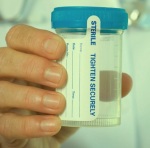 By: Jeff Cohen
By: Jeff Cohen
One of the biggest challenges faced by addiction treatment providers today, especially in Palm Beach County, Florida, arises in the context of unprecedented pressure by law enforcement via the Sober Home Task Force, newspapers and insurers. The threat of being targeted by law enforcement is an enormous thing in itself. Add to that the mainstream media’s insatiable desire for readers, the industry’s drop into insurer red flagging and recoupment, the political football nature of addiction and addiction treatment, and treatment providers can lapse into a state of paralyzed tunnel vision, a sort of mass hypnosis. Here’s the problem: providers dealing with the current compliance crisis environment have a lot to lose if they take their eye off the bigger picture. The more absorbed they become in “crisis mode,” the more likely they will miss important addiction treatment compliance details in an increasingly regulated and changing industry. Losing the ability to see the entire picture (and trends) and quickly adapting to it can have costly (and even deadly) consequences.
The addiction treatment industry is like any other healthcare provider—enormously and increasingly regulated, highly scrutinized and always dynamic. The moment it took on features of traditional healthcare (e.g. lab and physician services), it left the relatively warm and fuzzy comfort of behavioral health providers, sorta. “Sorta” because medical behavioral health (e.g. psychology and counseling) has not had it easy in the past 10 years, as it came under crushing price compression with managed care driven networks and other price cutting middlemen that have often been owned or controlled by insurance companies. Addiction treatment providers in the pure behavioral health space were “saved” from all this till about three years ago because they were out of network and not the focus of insurer driven price cuts. As payors (and their price cut incentivized middle men) looked for more ways to drive up profits, the competitive and disorganized addiction treatment sector became a natural (and unprepared) sector to hit. And they hit it hard! Clearly, the Perfect Storm. Addiction treatment providers now have no option but to learn to swim hard and fast in the ever changing river of the healthcare business industry.Continue reading
 By: Karina Gonzalez
By: Karina Gonzalez


 By:
By:  By:
By: 



